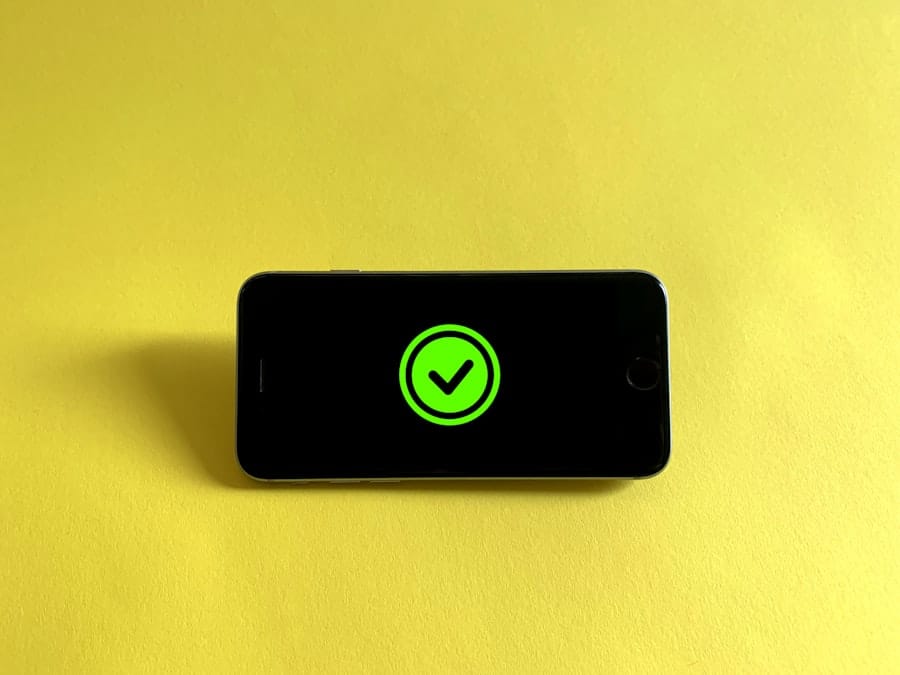In recent years, the concept of blockchain technology has transcended its initial association with cryptocurrencies, emerging as a transformative force in various sectors, including electoral processes. The rise of blockchain voting systems can be attributed to a growing demand for more secure, transparent, and efficient methods of conducting elections. Traditional voting systems have long been plagued by issues such as voter fraud, ballot tampering, and lack of transparency, leading to widespread skepticism about the integrity of electoral outcomes.
As a result, many governments and organizations are exploring blockchain as a viable solution to enhance the democratic process. The adoption of blockchain voting systems has gained momentum particularly in the wake of high-profile elections that have raised questions about electoral integrity. For instance, the 2016 U.S.
In response, several jurisdictions have begun pilot programs to test blockchain-based voting systems. These initiatives aim to leverage the decentralized nature of blockchain technology to create a more trustworthy electoral framework, where each vote is recorded immutably and transparently, thereby fostering greater public confidence in the electoral process.
Key Takeaways
- Blockchain voting systems are on the rise as a secure and transparent way to conduct electoral processes.
- Blockchain technology works in voting by creating a decentralized and tamper-proof ledger of transactions.
- Advantages of using blockchain in electoral processes include increased security, transparency, and accessibility.
- Overcoming challenges and concerns with blockchain voting systems involves addressing issues of scalability, privacy, and voter education.
- Case studies of successful implementation of blockchain voting demonstrate its potential to revolutionize electoral processes and increase trust in the system.
How Blockchain Technology Works in Voting
At its core, blockchain technology operates as a decentralized ledger that records transactions across multiple computers in a way that ensures the data cannot be altered retroactively without the consensus of the network. In the context of voting, each vote can be treated as a transaction that is securely recorded on the blockchain. When a voter casts their ballot, it is encrypted and added to a block of data.
This block is then linked to previous blocks in a chain, creating an immutable record of all votes cast during an election. The process begins with voter registration, where individuals are verified through secure identification methods. Once registered, voters can cast their ballots using a secure application that connects to the blockchain.
Each vote is assigned a unique cryptographic key that ensures anonymity while maintaining traceability. This dual focus on privacy and transparency is one of the key features that distinguishes blockchain voting from traditional methods. After the voting period concludes, the results can be tallied quickly and accurately, as all votes are already recorded on the blockchain, eliminating the need for manual counting and reducing the potential for human error.
Advantages of Using Blockchain in Electoral Processes

One of the most significant advantages of blockchain voting systems is their ability to enhance security. Traditional voting systems are vulnerable to various forms of manipulation, including hacking and ballot stuffing. Blockchain’s decentralized nature makes it exceedingly difficult for any single entity to alter the voting records without detection.
Each transaction is verified by multiple nodes within the network, ensuring that any attempt to tamper with the data would require an overwhelming amount of computational power and coordination among malicious actors. In addition to security, blockchain voting systems offer increased transparency. Voters can verify that their votes have been recorded accurately without compromising their anonymity.
This transparency can help build trust among voters who may be skeptical about the electoral process. Furthermore, because all transactions are time-stamped and stored on a public ledger, any discrepancies can be easily audited by independent observers. This level of accountability is crucial in restoring faith in electoral outcomes, particularly in regions where electoral fraud has been a persistent issue.
Overcoming Challenges and Concerns with Blockchain Voting Systems
Despite the promising advantages of blockchain voting systems, several challenges and concerns must be addressed before widespread adoption can occur. One major concern is the digital divide; not all voters have equal access to technology or the internet. This disparity could disenfranchise certain populations, particularly those in rural areas or low-income communities who may lack reliable access to digital devices or high-speed internet connections.
To mitigate this issue, it is essential for governments to implement inclusive strategies that ensure all citizens can participate in the electoral process, regardless of their technological capabilities. Another challenge lies in the regulatory landscape surrounding blockchain technology. Many jurisdictions lack clear legal frameworks governing the use of blockchain for voting purposes.
This ambiguity can create uncertainty for election officials and voters alike. Establishing comprehensive regulations that address issues such as data privacy, voter authentication, and system integrity will be crucial for fostering confidence in blockchain voting systems. Additionally, ongoing education and outreach efforts will be necessary to inform voters about how these systems work and how they can participate effectively.
Case Studies of Successful Implementation of Blockchain Voting
Several notable case studies illustrate the successful implementation of blockchain voting systems across different contexts. One prominent example is the 2020 U.S. presidential election, where several states experimented with blockchain-based voting solutions for overseas voters.
For instance, Utah County utilized a blockchain platform called Voatz to allow military personnel stationed abroad to cast their votes securely via mobile devices. The pilot program demonstrated not only the feasibility of using blockchain for remote voting but also highlighted its potential to increase voter participation among those who might otherwise face barriers. Another significant case occurred in Estonia, which has been at the forefront of digital governance since implementing its e-Residency program in 2014.
Estonia’s online voting system leverages blockchain technology to ensure secure and transparent elections. The country has successfully conducted multiple elections using this system, allowing citizens to vote from anywhere in the world while maintaining high levels of security and privacy. The Estonian model serves as a compelling example for other nations considering similar initiatives, showcasing how blockchain can facilitate democratic participation while addressing concerns about electoral integrity.
The Impact of Blockchain Voting on Electoral Trust

The introduction of blockchain voting systems has the potential to significantly impact public trust in electoral processes. Trust is a cornerstone of democracy; when citizens believe that their votes are counted accurately and fairly, they are more likely to engage in the political process and participate in future elections. By providing a transparent and secure method for casting votes, blockchain technology can help alleviate fears surrounding electoral fraud and manipulation.
Moreover, as more jurisdictions adopt blockchain voting systems and demonstrate their effectiveness, public confidence may grow further. The ability for independent observers to audit election results easily enhances accountability and fosters an environment where citizens feel empowered to hold their governments accountable. This shift could lead to increased voter turnout and greater civic engagement as individuals recognize that their voices matter and that they can trust the systems in place to represent their interests.
Future Potential and Development of Blockchain Voting Systems
Looking ahead, the future potential of blockchain voting systems appears promising as technology continues to evolve and mature. Ongoing advancements in cryptography and decentralized technologies may lead to even more robust solutions that address current limitations while enhancing security and user experience. For instance, developments in zero-knowledge proofs could allow voters to verify their votes without revealing their identities or choices, further protecting voter privacy while maintaining transparency.
Additionally, as more countries explore digital governance initiatives, there may be increased collaboration among nations to share best practices and lessons learned from implementing blockchain voting systems. International organizations could play a pivotal role in facilitating this exchange of knowledge, helping to establish global standards for secure and transparent electoral processes. As these systems gain traction worldwide, they could redefine how elections are conducted and pave the way for more inclusive democratic participation.
The Importance of Transparency and Security in Electoral Processes
In any democratic society, transparency and security are paramount when it comes to electoral processes. Voters must have confidence that their votes will be counted accurately and that the overall election process is free from manipulation or fraud. Blockchain technology inherently addresses these concerns by providing an immutable record of all transactions while allowing for independent verification by multiple parties.
The importance of transparency cannot be overstated; it serves as a foundation for public trust in government institutions.
Similarly, security measures inherent in blockchain technology protect against unauthorized access and tampering, ensuring that only legitimate votes are counted.
As societies continue to grapple with issues related to electoral integrity, embracing innovative solutions like blockchain may be essential for fostering trust and ensuring that democracy remains resilient in an increasingly complex world.
A related article to “How Blockchain Voting Systems Are Increasing Electoral Trust” is Best Software to Clone HDD to SSD. This article discusses the importance of using reliable software to transfer data from a hard disk drive to a solid-state drive efficiently. Just like how blockchain technology ensures the security and transparency of voting systems, using the right software for data migration can help prevent data loss and ensure a smooth transition to a new storage device. Both topics highlight the significance of utilizing trustworthy technology to improve processes and build trust among users.
FAQs
What is a blockchain voting system?
A blockchain voting system is a digital voting system that uses blockchain technology to securely and transparently record and store votes. Blockchain is a decentralized and tamper-proof digital ledger that ensures the integrity and security of the voting process.
How does a blockchain voting system increase electoral trust?
Blockchain voting systems increase electoral trust by providing a transparent and immutable record of votes, making it nearly impossible for votes to be tampered with or manipulated. This transparency and security help to build trust in the electoral process and the outcome of elections.
What are the benefits of using blockchain voting systems?
Some benefits of using blockchain voting systems include increased security and integrity of the voting process, reduced risk of fraud and manipulation, improved transparency and auditability, and the potential for increased voter turnout through more accessible and convenient voting methods.
Are there any challenges or concerns associated with blockchain voting systems?
Some challenges and concerns associated with blockchain voting systems include potential technological barriers for certain groups of voters, the need to ensure the privacy and anonymity of voters, and the potential for cyber attacks or vulnerabilities in the voting system.
Are blockchain voting systems being used in real-world elections?
While blockchain voting systems are still in the early stages of development and adoption, there have been some pilot projects and trials of blockchain voting in real-world elections. However, widespread adoption of blockchain voting systems in large-scale elections is still a topic of ongoing research and debate.

